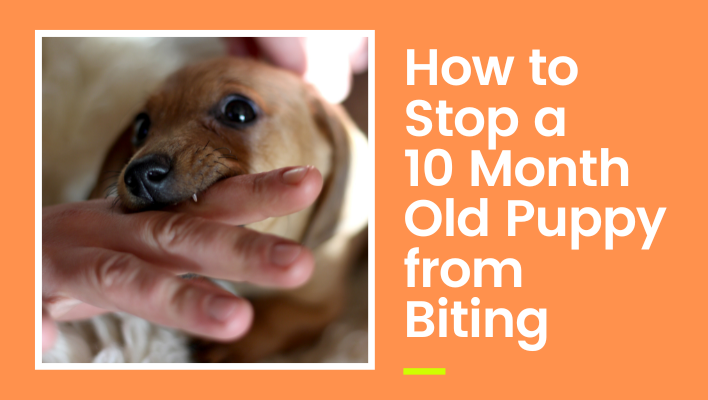Welcoming a new puppy into your home can be an exciting and joyful experience. However, dealing with a 10-month-old puppy who hasn’t outgrown their biting habits can be challenging. Puppies explore the world through their mouths, and while it’s natural for them to nip and bite during play, it’s important to teach them appropriate behavior. In this blog post, we will discuss effective strategies to help you stop your 10-month-old puppy from biting.
Table of Contents
Understand the Reason behind the Biting
Before addressing your puppy’s biting behavior, it’s crucial to understand why they are doing it. Puppies may bite for various reasons, including teething, playfulness, attention-seeking, or even fear or anxiety. Identifying the underlying cause will help you tailor your approach accordingly.
Provide Appropriate Chew Toys
Puppies need to chew to relieve teething discomfort and to explore their surroundings. Provide a variety of chew toys specifically designed for puppies. When your puppy starts to bite, redirect their attention to a chew toy, encouraging them to chew on it instead. Praise and reward your puppy when they chew on the appropriate toys.
Teach Bite Inhibition
Bite inhibition is the process of teaching your puppy to control the force of their bite. This is crucial as it helps them understand that biting too hard is unacceptable. Whenever your puppy bites too hard, let out a high-pitched yelp or say “ouch” to mimic the sound their littermates would make. This will startle your puppy and make them realize they’ve caused discomfort. Immediately withdraw attention by moving away or ending playtime for a short while. Over time, your puppy will learn to control their bite pressure.
Socialize Your Puppy
Proper socialization is essential for puppies to learn appropriate behavior with other dogs and people. Arrange playdates with other friendly and well-behaved dogs to help your puppy understand boundaries and communicate through play. Encourage positive interactions with a variety of people, ensuring your puppy is exposed to different ages, genders, and appearances. This exposure will help reduce fear-based biting and encourage a well-rounded and friendly temperament.
Consistent Training and Positive Reinforcement
Consistency is key when training a puppy. Establish clear rules and boundaries and ensure all family members are on the same page. Use positive reinforcement techniques such as treats, praise, and petting to reward good behavior. Whenever your puppy refrains from biting or uses appropriate chewing objects, provide immediate positive reinforcement. This helps them associate desirable behavior with rewards and encourages them to repeat it.
Avoid Harsh Punishment
Punishing or scolding your puppy for biting can create fear and anxiety, leading to more behavioral issues. Instead of using punishment, focus on redirection and positive reinforcement. Harsh punishment may damage the trust and bond between you and your puppy, hindering the training process.
Conclusion:
Dealing with a biting puppy can be challenging, but with patience, consistency, and proper training techniques, you can teach your 10-month-old puppy to control their biting behavior. Remember to understand the underlying reasons behind the biting, provide appropriate chew toys, teach bite inhibition, socialize your puppy, and consistently use positive reinforcement. With time, effort, and love, you’ll help your furry friend develop into a well-behaved and delightful companion.
Note: If you notice any excessive or aggressive biting behavior, it’s advisable to consult a professional dog trainer or a veterinarian to address the issue properly.

